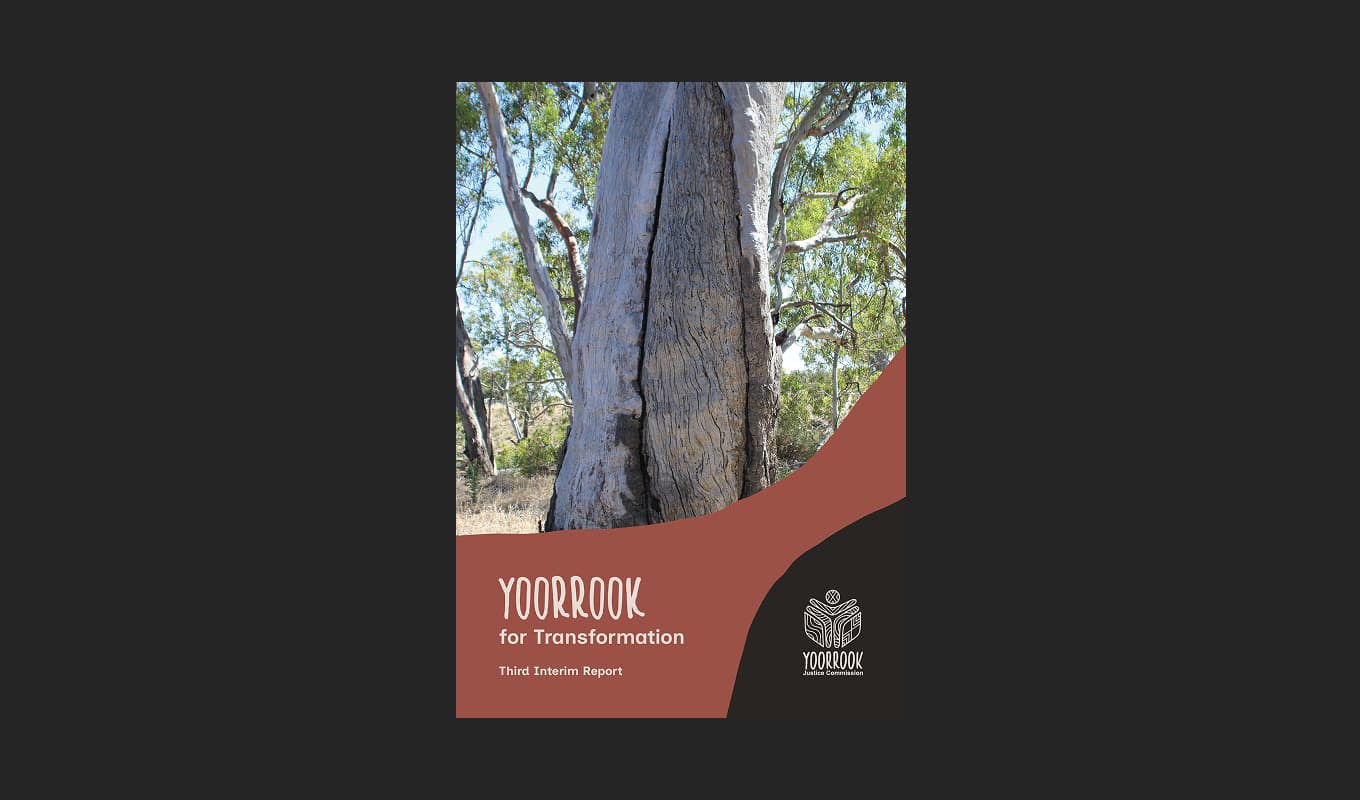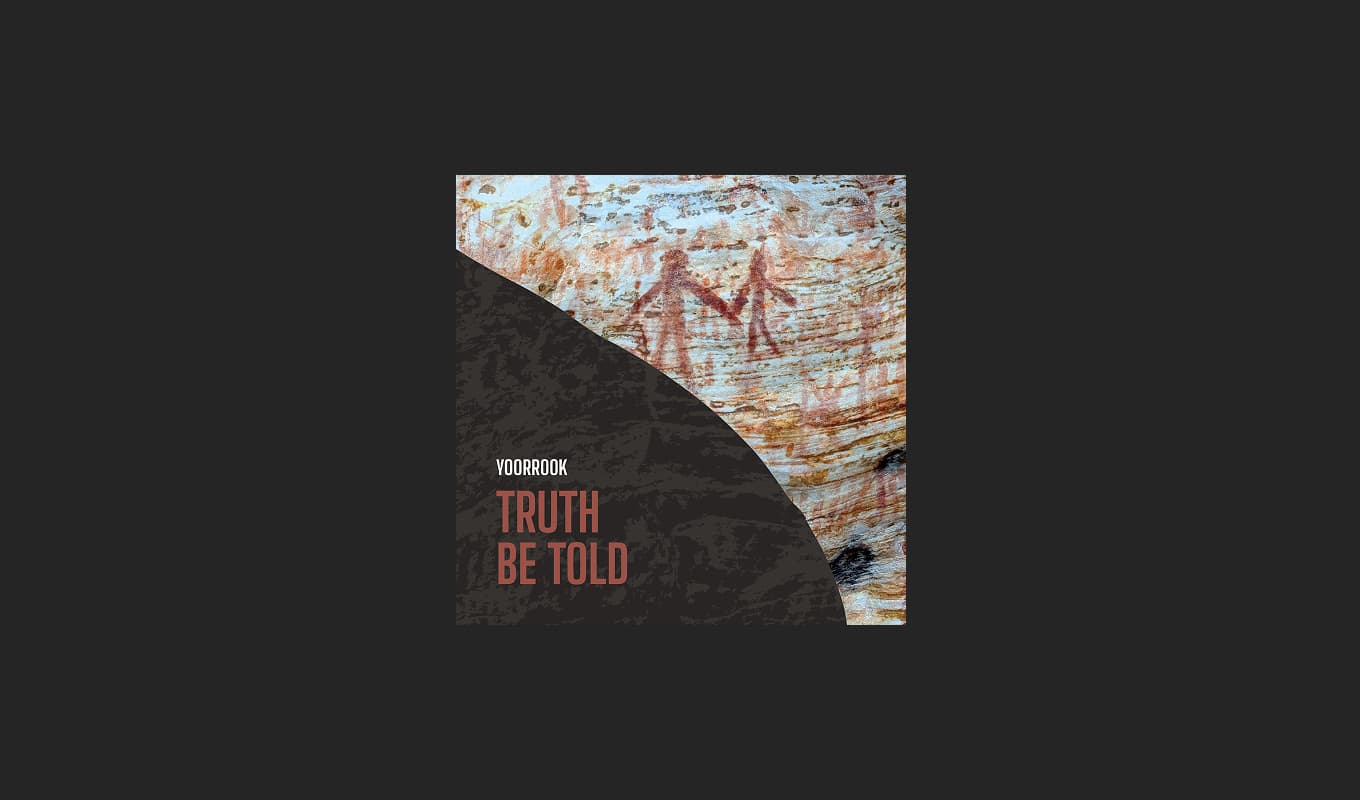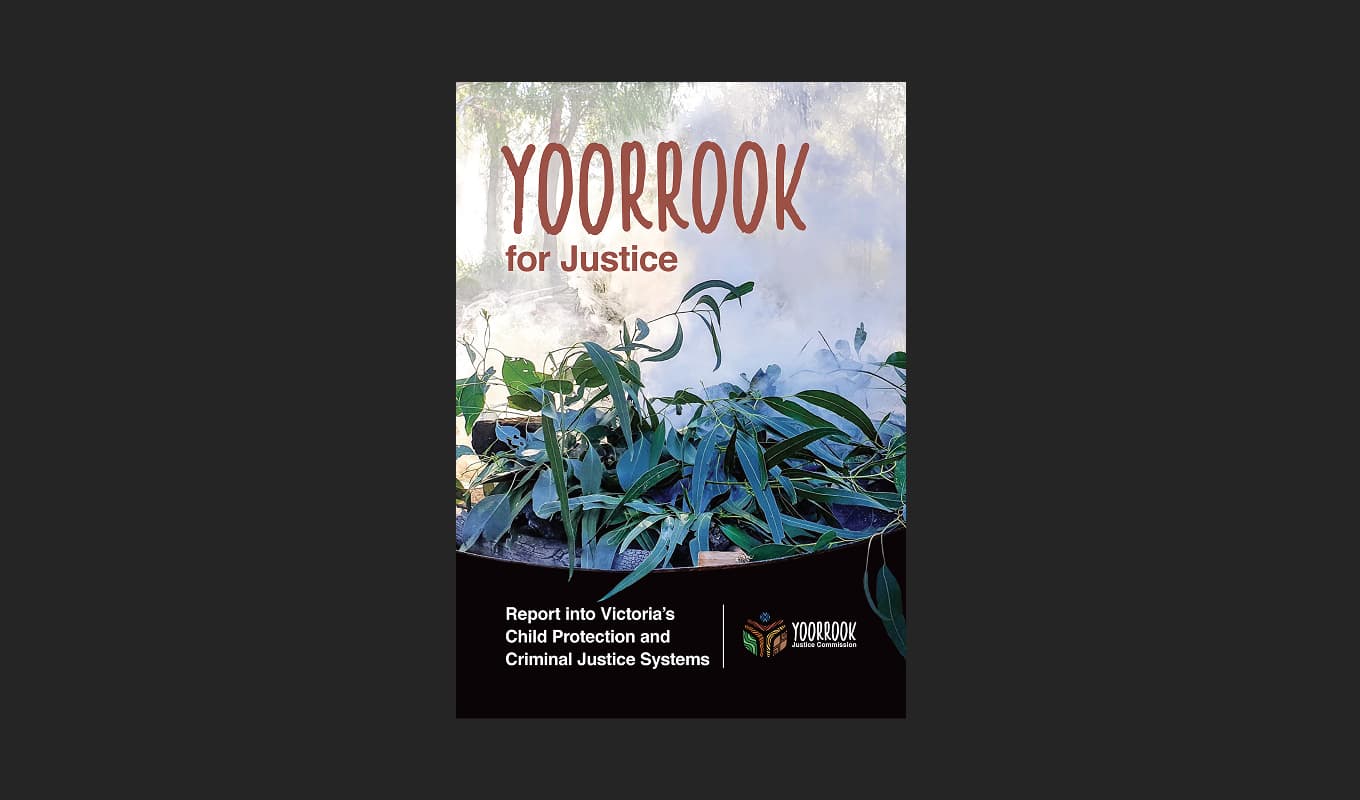Vicki
Vicki highlights the devastating impacts of colonisation on First Peoples, criticising the lack of comprehensive education on Aboriginal culture and history. She advocates for teaching First Peoples stories and history in classrooms, guided by First Peoples, and integrating their culture across all subjects. She urges non-First Nations Victorians to seek out and share First Nations stories, and to engage in truth-telling and treaty processes.
Submission Transcription
I know from knowing and listening to First Peoples and from reading history that the colonisation of Victoria had some devastating impacts. The ‘reserves’ that were formed took people from their Country and forced First Peoples to live in ways that were not part of their culture. Some, like Coranderrk, might have started with promise, but eventually colonial white control always ended up dominating and forcing Aboriginal people to live in ways they didn’t want to. There was widespread abuse, widespread stealing children from their families, and a deliberate campaign to wipe out Aboriginal people. There was a belief that they would die out. European diseases and murders by white settlers had a huge impact, and the attacks by colonial settlers on Aboriginal people has rarely been acknowledged in Victoria. From the beginning, the colonisation of Victoria was racist in its goals, its actions and its impacts – and those impacts continue to be felt today. Despite all this, First Peoples of Victoria are still here and still resilient. I don’t know all the details as I’m white and the depth of Aboriginal cultural belonging is not my experience, but I do know that cultural expression and experience is, for some First Peoples, becoming stronger again, and some language is recovering and being taught to children and others.
I lived overseas for most of my life until the age of 17, including in New Zealand Aotearoa, where we learned some Maori language and heard stories from Maori elders in our little suburban Auckland school. Maori culture, language, history, artwork, song, dance, story and more was a constant presence in my life. After about 7 years living in both Central America and North America, where First Peoples culture is prominent and represented in different ways, my family and I returned to Australia wanting to learn about First Peoples here. But there was nothing in school and very little in the broader Australian community. Nothing (or close to nothing) in uni, depending on where you studied. I was in high school in the late 80s and uni in the early to mid-90s. The only reason I have any understanding of Aboriginal and Torres Strait Islander people, cultures, colonial impacts etc is because of my parents, who formed bonds and relationships with First Nations people through church networks. I remember looking around for information and stories about Aboriginal people in my early 20s and finding very little to guide me. I read Sally Morgan’s My Place and Auntie Rita by Jackie Huggins, and a couple of other books. There were shows like Fringe Dwellers and others, but until more First Nations stories, books, plays and movies were brought out by First Peoples, my understanding was limited. My experience in the education system is that Aboriginal culture, the truth of colonisation, and anything really to do with First People was absent from formal schooling. The only reason I have any knowledge (such as it is) or understanding is because of my own choices, my mother and father, and the books I read in one subject at uni. I formed friendships with Aboriginal people over the years, through mutual friends and work, and have learned a bit more here and there, but formal education, where we’re encouraged to read primary sources, interpret the writings through a cultural lens, critically analyse the actions and policies… none of that. Not only that – there’s so much richness and value in all students learning about Aboriginal and Torres Strait Islander culture – not just to learn about the colonial atrocities, but also to understand their intrinsic value, the relationship with Country and land, the languages. Not to appropriate anything, but to build deeper understanding and learn the depth and breadth within First Peoples cultures.
First Peoples stories and history being taught in classrooms, both as history but as also as insight into culture. Opportunities for school children to visit places of significance, guided by First Peoples (who are paid to do so), as a way of deepening their understanding of the impact of colonisation and the ways in which First Peoples survived and resisted. I think it’s vital that this history is taught as part of a broader understanding about Victoria’s First Peoples, and it should be taught or at least co-taught with First Peoples. That’s a big ask, I know – but most schools invite guest speakers and experts (and pay them!) to talk to students. Wherever history is taught, there should be lessons and resources and discussions about colonisation and First Peoples. The resources MUST be developed by First Peoples, in conjunction with education providers, and must be delivered by First Peoples (in conjunction with others where necessary). There are ways of creating resources that enable experiential learning, developed by First Peoples, and implemented in the classroom. It starts with the Education Department prioritising a program of hiring First Peoples to develop and co-develop teaching resources, and it starts with the Victorian Government reviewing the curriculum through a First Nations cultural lens. In addition, education and learning doesn’t start or end with ‘history’. It should be enfolded through all core units and subjects, including literature (read Alexis Wright or Tony Birch), art (visit First Nations galleries, learn from First Nations artists), sociology, psychology, legal studies (how has the law impacted First Peoples?), politics (so much to say about politics and its impact on First Peoples), and even things like sport (Marngrook, anyone?), and media and studies (Rachel Perkins, Stan Grant, Leah Purcell). Rich, diverse, multi-faceted culture, storytelling, experiences, language, history and of course expertise – there’s so much to learn and celebrate and the government needs to look very seriously at the curriculum to identify the many ways that First Nations people and culture could be taught as a standard part of learning, from pre-school up to university.
We can seek out stories, knowledge, writings, other media developed and produced by First Nations people. We can go to plays like Coranderrk, read books by First Nations writers, research about the history of our own state. We can subscribe to Victorian Aboriginal News and follow Yoorook and First Peoples Assembly on social media. We have to be deliberate about it, because the stories and information are still not part of everyday mainstream media, so we have to seek them out. We can also share what we learn and know with others who are not First Nations. We also need to process what we learn, and try to identify our unconscious biases about our privilege. I think we play an important role in trying to stop the polarisation and disinformation. We have to be courageous and willing to have difficult or uncomfortable conversations with non-First Nations people who are expressing racist or ignorant comments. But we can only do that if we understand more than most of us currently do. And that brings me to the other part – we need to listen to the First Nations people who have spoken up during Truth-telling. That means on the Yoorook Justice Commission page, watching the videos of people truth-telling. The best way to learn, understand and develop deeper understanding is to deliberately seek out the truth-telling stories – whether videos, podcasts, radio programs (such as Indigenuity on RRR). We need to be honest that we don’t know or understand much, and that the first step in addressing the colonial history is to educate ourselves by listening to First Nations voices, stories and experiences. I’m part of a local reconciliation group, and a key part of why we exist is to learn and educate ourselves (first) in order to engage with other non-First Nations people and bring them on the learning journey. We want to bring other non-First Nations people into contact with First Nations stories, experiences, voices, knowledge – in a wide range of ways. To contribute to the Truth-telling and Treaty, we all need to be willing to learn and listen.
We can seek out stories, knowledge, writings, other media developed and produced by First Nations people. We can go to plays like Coranderrk, read books by First Nations writers, research about the history of our own state. We can subscribe to Victorian Aboriginal News and follow Yoorook and First Peoples Assembly on social media. We have to be deliberate about it, because the stories and information are still not part of everyday mainstream media, so we have to seek them out. We can also share what we learn and know with others who are not First Nations. We also need to process what we learn, and try to identify our unconscious biases about our privilege. I think we play an important role in trying to stop the polarisation and disinformation. We have to be courageous and willing to have difficult or uncomfortable conversations with non-First Nations people who are expressing racist or ignorant comments. But we can only do that if we understand more than most of us currently do. And that brings me to the other part – we need to listen to the First Nations people who have spoken up during Truth-telling. That means on the Yoorook Justice Commission page, watching the videos of people truth-telling. The best way to learn, understand and develop deeper understanding is to deliberately seek out the truth-telling stories – whether videos, podcasts, radio programs (such as Indigenuity on RRR). We need to be honest that we don’t know or understand much, and that the first step in addressing the colonial history is to educate ourselves by listening to First Nations voices, stories and experiences. I’m part of a local reconciliation group, and a key part of why we exist is to learn and educate ourselves (first) in order to engage with other non-First Nations people and bring them on the learning journey. We want to bring other non-First Nations people into contact with First Nations stories, experiences, voices, knowledge – in a wide range of ways. To contribute to the Truth-telling and Treaty, we all need to be willing to learn and listen.
Truth-teller consent
Contact us about this submission
Contact us if you’d like to discuss this submission.
Similar submissions
Explore submissions from other witnesses that discuss similar topics.
Viki Sinclair (Fowler)
Viki Sinclair is a direct descendant of one of the original settlers of Gippsland, Colin McLaren. In this submission, she tells her personal story of... more
Prof. Mark G. Brett
Prof. Mark G. Brett's paper, "Reinventing Waste Land as a Colonial Legal Fiction," explores the historical development of the concept of waste land fr... more
Barbary Clarke
Barbary Clarke and Jason Clarke, descendants of Alfred Deakin and William John Turner, also known as Big Clarke, discuss aspects of their family's his... more
Reports and Recommendations
Read the official reports and recommendations of the Yoorrook Justice Commission.

Yoorrook for Transformation
Third Interim Report: A five-volume comprehensive reform report presenting evidence and findings on systemic injustices, and specific recommendations for meaningful change to transform the future.

Truth Be Told
An official public record that documents First Peoples experiences since colonisation, preserves crucial testimonies for future generations and creates an enduring resource for education and understanding.

Recommendations for change
Yoorrook Justice Commission’s recommendations for truth-telling, justice, and systemic reform in Victoria.

